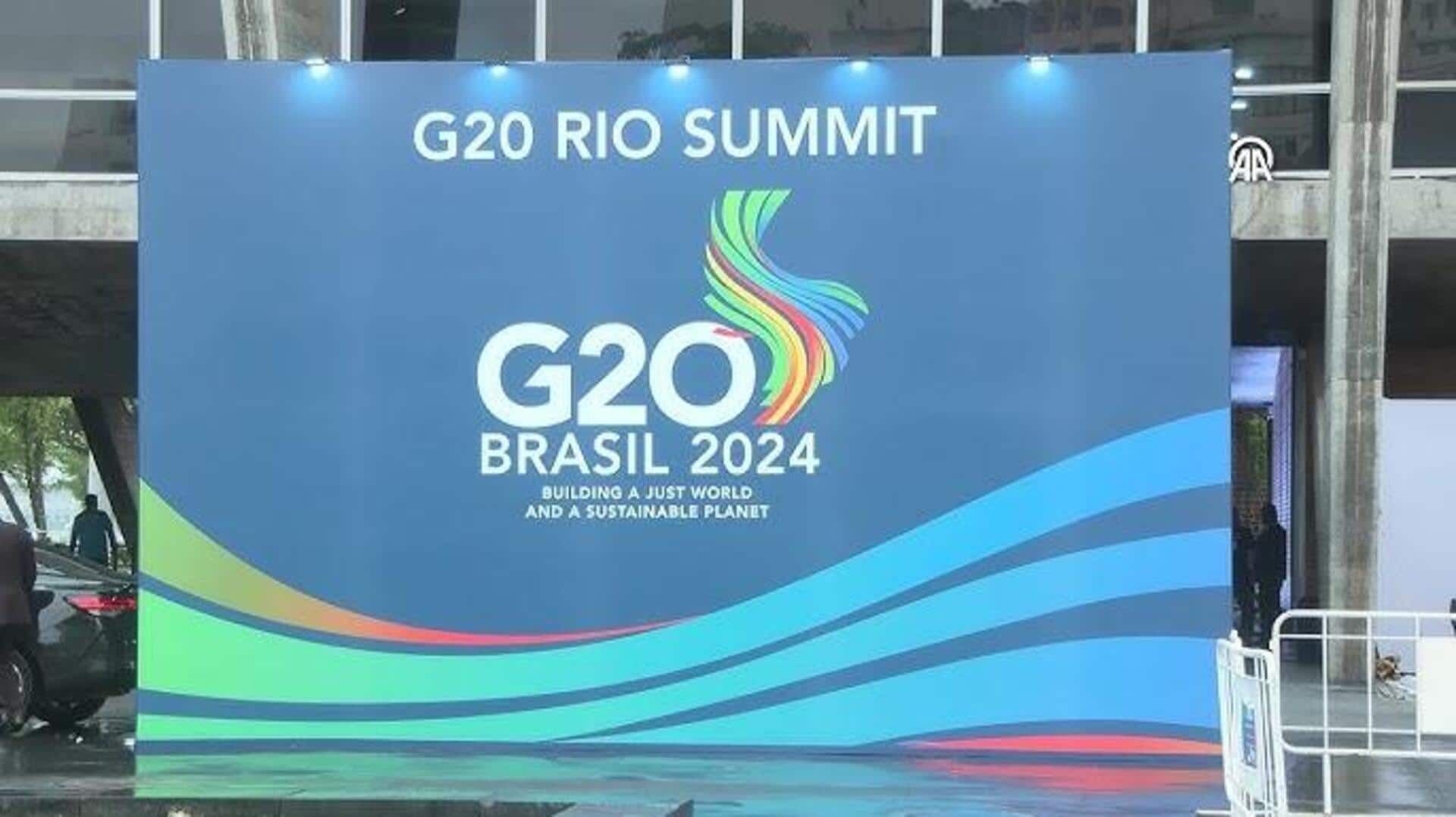
Troops, drones, cameras: Rio turns into a fortress for G20
What's the story
In the backdrop of the G20 Summit, Rio de Janeiro has turned into a high-security zone as it gears up to host the G20 Summit on Monday. The city has deployed 25,000 soldiers and police officers, installed thousands of security cameras, and declared a two-day public holiday to minimize disruption. The summit is being held at the Museum of Modern Art, overlooking the Sugarloaf Mountain.
Security enhancements
Air and sea security measures in place for G20 Summit
The second-major Santos Dumont Airport will be shut during the summit, with flights diverted to the main Galeao International Airport. Navy ships are patrolling waters nearby, including Copacabana and Ipanema beaches. Drones and helicopters are monitoring the city from above. Lucas Padilha, head of Rio's municipal G20 organizing committee, described ensuring a trouble-free summit as "a real challenge."
Presidential decree
Brazilian President authorizes military intervention for G20
Brazilian President Luiz Inacio Lula da Silva has signed a security decree permitting military intervention if required. The summit's agenda includes discussions on poverty reduction and climate financing. The event comes ahead of COP29 in Azerbaijan, where climate finance remains a contentious issue. UN Secretary-General Antonio Guterres urged G20 members to show "leadership and compromise" on climate issues.
Climate talks
US president-elect's return may complicate climate negotiations
The return of US President-elect Donald Trump could further complicate climate negotiations, as he intends to withdraw from the Paris climate accord again. Security measures come after a failed bomb attack on Brazil's Supreme Court in Brasilia last week. Federal police have conducted bomb sweeps at the museum and stationed snipers for protection. A total security force of 26,000 members is in place for the summit.
Climate finance
G20 countries hold significant influence over climate finance
The G20 countries account for more than three-quarters of global greenhouse gas emissions. They also wield considerable power over multilateral development banks essential for climate finance. UN climate chief Simon Stiell urged G20 leaders to increase grants for developing nations. The increased security presence is likely to curb violence temporarily in Rio's favelas (neighborhoods on the outskirts), which witnessed 1,790 murders in the first half of this year.